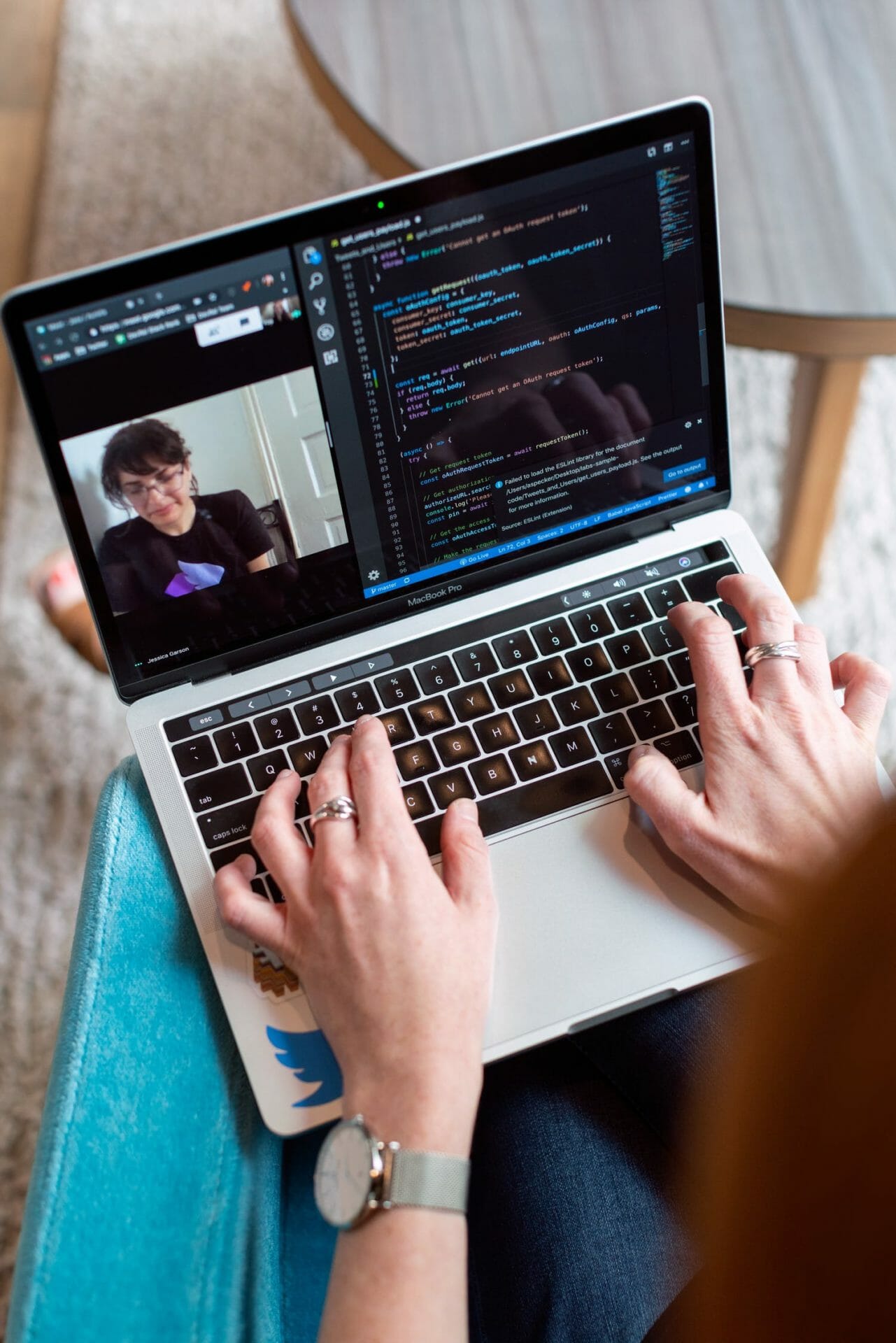Table of Contents
In an age where you can't seem to avoid technology, many people have found themselves asking this question. These days it seems as though everyone is hooked on their laptops. Whether a person uses a laptop for business or fun, they always ask the same question: "How many watts does a laptop use?" Many people desire to know the number; however, this question has no set number. Wattage varies depending on what the user is doing with their laptop.
A laptop can be low-powered or high-powered, depending on its intended use.
What Is Wattage?
A wattage is a unit of measurement for power that is commonly used with devices that draw electricity from an outlet. It's the rate at which energy is drawn from a device. For example, a 15-watt light bulb draws more energy than a 100-watt light bulb.
A laptop's power consumption depends on what you are doing with it. When the laptop is idle, it uses significantly less power than when it is in use. It means that if you leave your laptop open but do not use it for an extended period, the wattage will drop to a level that saves money and still offers safety.
However, there are times when a laptop user will see a surge in wattage, such as when a video is being played or when the laptop is being used with an extension cord.
When considering how many watts a laptop uses, you have to think about whether or not the laptop is plugged in and what app/programs are running on it.

What Is the Average Wattage of a Laptop?
The average wattage is usually around 50 watts for essential laptop functions such as writing documents, note-taking, and surfing the internet. When a laptop engages in more intensive tasks, such as running a graphic-intensive game or playing a Blu-Ray movie, the wattage is usually around 60 watts to 90 watts. The average netbook computer draws around 10 watts of power.
What Do Watts Have To Do with Gaming?
Gaming laptops draw much higher wattage than regular laptops. A high-end gaming laptop can have anywhere from 120 watts to 200 watts of power, whereas a regular laptop usually has between 50 and 80 watts. The more intense the game you are playing, the more wattage your computer will need to run smoothly.
How Many Watts Does a Laptop Use Per Hour?
There is no straight answer to this question. As mentioned before, wattage can vary anywhere from 50 watts to 120 watts depending upon what the user is doing with the laptop. The more intense your task, such as watching a movie or playing an intense game, the more wattage you will use in that hour.
However, a basic laptop power consumption is averagely 60 watts per hour even when not in use.

How Can You Reduce the Wattage of a Laptop?
Many laptop owners don't realize that they can reduce their wattage by doing simple things such as closing the laptop screen, using a power strip to shut off other devices, and using less power-hungry programs. Most computers have a power management feature that will allow the user to change the settings of their laptop into a more energy-efficient type of power to reduce wattage.
How To Calculate Laptop Watts?
You can also use a watt calculator online to help you figure out your laptop's wattage. Just type in the specs of your computer, and it will tell you exactly how much power you are using daily.
Also, you can multiply the voltage rating and the current rating to get the wattage.
For example, if your laptop is rated at 18 volts and 2 amps, you can multiply them together to get 36 watts. It means that you are drawing approximately 36 watts of power from your laptop's battery or outlet if it is fully charged.
Factors That Affect Laptop Wattage
When considering how many watts does a laptop use, you also have to consider factors such as:
Type of Laptop
Energy consumption can vary from company to company, and types of laptops also have different wattage requirements. A general laptop will usually use 50 watts of power at its lowest usage if it's an available laptop. However, laptops that run graphics-intensive games and require high-end graphics cards (such as Alienware laptops) can use up to 100 watts of power.
Size of the Laptop
Smaller laptop screens need less power than larger laptop screens. With bigger laptop screen sizes, like in a 17-inch screen, you will have a more significant battery demand than those with smaller screens. Also, the best thin laptops should last from 7 – 15 hours for every single battery charge.
Number of Programs Running
More programs or apps being used on your laptop will increase the power consumption and the computer's internal temperature. As such, if you are playing a graphic-intensive game on your laptop, not only will it use more energy, but it will also require proper ventilation to keep cool.
Screen Brightness
The screen brightness can affect your laptop's battery life due to the backlight. Reducing the brightness of your laptop's screen will cause it to use less energy without hindering your ability to see what you are doing.
CPU Usage
CPU stands for the central processing unit. The higher the CPU usage, the more energy is required to keep it running smoothly and at a fast pace. It means that if you are using your laptop for graphics-intensive or processor-intensive applications such as video editing or gaming, then expect your laptop life to decrease drastically due to high CPU usage.
Adapter Wattage
Your laptop's adapter wattage is another factor that affects how many watts your computer uses. If you have a bigger screen or more features on your laptop, it will require a higher power supply to keep it running optimally.
Type of Battery
If using a lithium-ion battery, expect less power than a lithium polymer battery. Also, nickel-based batteries are known to use more energy than other batteries.
Charger
Your laptop's charger power consumption is also an essential factor. It's because notebooks that have a smaller wattage will usually come with a charger of lower wattage as well. So if you are using the standard laptop charger for your older laptop, expect higher power consumption than usual because it requires fewer watts to function correctly.
How Do I Check the Power Consumption of My Laptop?
You can find the power consumption of your laptop in different ways.
Use a LocalCooling
Download a Localcooling and run it on your PC. When it's connected, go to settings then power tab. It will tell you the watts that your laptop is using at the time and how much more battery life it has left.
Check the Wattmeter
The wattmeter gives an accurate reading of how many watts your laptop uses. Just plug it into the USB port and monitor the PC's power consumption.
Try Power Supply Calculator
Some calculators can help you determine how many watts your laptop is using. They offer both expert and basic calculation modes.
To Keep Your Laptop Safe
It's easier to keep track of your laptop's power consumption if you monitor it regularly. It will give you an accurate idea of how many watts your computer is using, which provides you with the option to make adjustments to efficiently use electricity or save on energy costs.
How to Reduce the Power Consumption of Your Laptop
If you want to reduce the number of watts your laptop uses, there are a few things you can do.
Keep Your Laptop Cool
Make sure that your laptop isn't overheating, as this could increase its power consumption. Try placing it on a flat surface to expose as much surface area as possible for cooling purposes. Keep vents open, and ensure that you don't block the vent with other items.
Reduce the Screen Timeout
Reducing the screen timeout can be an excellent way to save batteries and prevent your laptop from overheating. It means that you should adjust your settings so that it turns off faster, which can turn on faster as well.
Disconnect External Devices
Disconnecting external devices - such as mice, USB cords, or speakers - will reduce the laptop's power consumption. Even turning down your laptop speakers will help save the battery.
FAQ
Q. How many watts does a 17-inch laptop use?
A. A 17-inch screen's average power consumption is 90 watts.

A general laptop with a 17-inch screen may use 90 watts, while a gaming laptop with a larger display may use 150 watts.
Q.How much power does a laptop use when plugged in?
A. When plugged into the wall, your laptop is likely to use between 45 - 60 watts even when it's "off."
Q. How many watts is too much for a laptop?
A. Generally speaking, 0-50 watts of power is considered safe for laptops, but some can handle more than that amount without damage.
Q. How many watts is a laptop safe to use?
A. Li-ion batteries are usually safe for devices that consume up to 100 watts of power. In other words, as long as your laptop's battery is replaced with Li-ion, it will be able to handle the average number of watts a computer has at 60-80 watts.
Q. How many amps is a laptop safe to use?
A. If your laptop requires 60-70 watts of power, it's probably going to use two amps of electricity at 120 volts, equal to 24 watts.
Conclusion
So, how many watts does a laptop use? A general laptop uses 45-90 watts, while gaming laptops can use 150. The number of amps your PC's battery is safe to handle will depend on its type and whether it uses Li-ion or nickel-based batteries. A laptop is considered safe to use if it uses 0-50 watts of power.
A calculator is an excellent option for determining how many amps your laptop's battery can handle. Once you have the data, monitor the wattage your computer requires to keep it powered on so you know when to take preventive measures.

